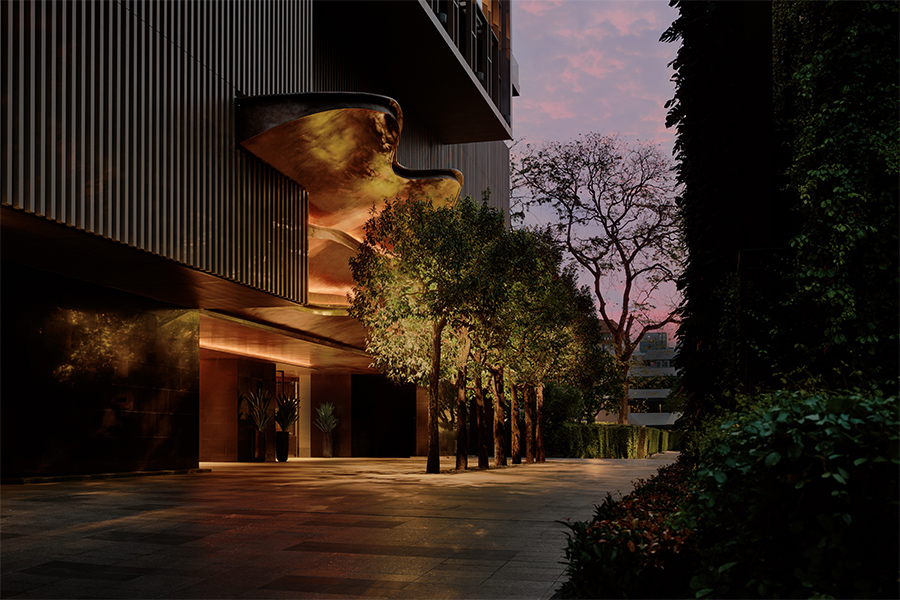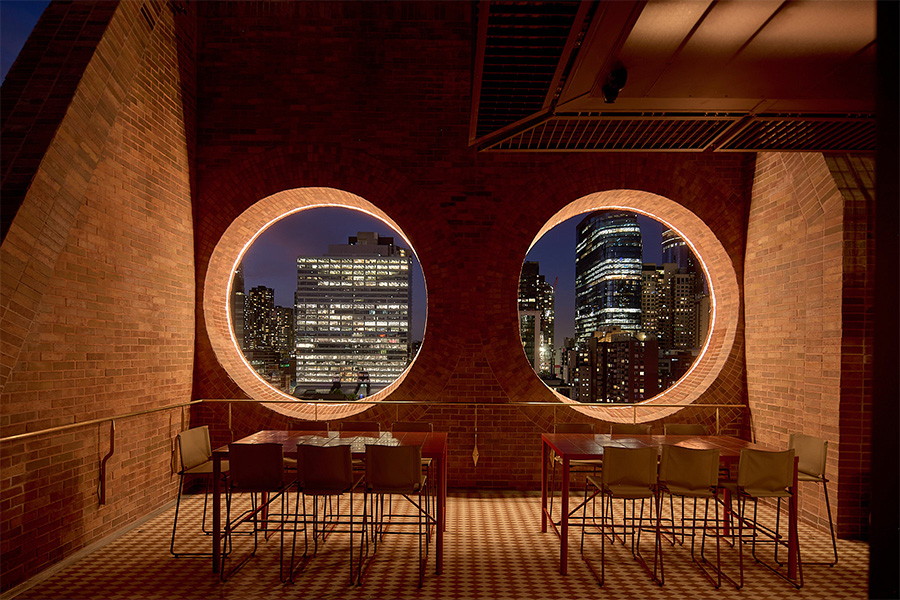Ontario’s Prince Edward County, located within hours of Toronto, Ottawa, and Montreal, is a coveted regional getaway mixing commanding Canadian scenery with an impressive lineup of restaurants and wineries. Come 2023, the area will also be home to a healing stay immersed in nature when the IRTH Landscape Hotel and Spa opens in North Marysburgh, set on 79 acres of old forests, meadows, and escarpments.
The brainchild of Toronto-raised siblings Alex and Robin Daprato and their mother Melanie Hazell, a forest therapist, IRTH serves as a retreat more than a resort. “It’s not a tourist speed there; it’s much more agrarian and calmer,” says Matt Davis, founding partner of Toronto-based DesignAgency, which was hired to bring the concept, which will be part of Design Hotels, to life. “One of the beauties of this site is that the more time you spend there, you fall a little more in love with the subtleties. It’s got lots of dramatic elements, but it’s not like it’s at the foot of the Rockies. It’s got its own kind of humble essence.”

IRTH Landscape Hotel and Spa is situated in rustic Prince Edward County, Ontario
DesignAgency, along with Toronto’s Kearns Mancini Architects and Sid Lee Architecture in Montreal, are collaborating on the sensitive development of this ecologically sound 24-room boutique hotel—an alternative to Prince Edward County’s abundance of bed and breakfasts and Airbnbs—that showcases the surroundings in surprising, thoughtful ways. Even a plant specialist is weighing in with expertise during the planning stage. “The land is fertile and rich. Let’s get people closer to that,” says Davis.
Twelve cabins offering “rabbit’s eye-views” as Davis puts it, will be sunken into the earth, allowing guests to feel as if they are sleeping on the ground and gazing through the grass. By contrast, the 12 lodge rooms in the forest, arranged at staggered heights to elicit different perspectives, will have elevated beds.
Given IRTH’s sustainable ethos, the team is planning to work with area craftspeople as well as weave in a multitude of local materials like wood, shale, and wool. To encourage saving water, there is even talk of featuring individual gauges in all accommodations, with a “reward and cost factor” for those who either adhere to or break thresholds. Overall, IRTH will champion a spirit of giving back, points out Davis, to the property, community, guests’ wellbeing, and of course environment. The goal, he adds, is “to be net positive, to create something putting back more energy into the grid than it’s taking.”

IRTH Spa, mixing indoor and outdoor experiences, will be one of the property’s therapeutic highlights
Land stewardship is front and center at IRTH, and this will manifest in a number of experiential aspects, including foraging excursions or a possible farmer-in-residence. A hydro spa highlighting the ancient Japanese ritual of forest bathing, known as shinrin-yoku, will also play a central role. First, guests will be invited to partake in a tea ceremony and then they will migrate into a liminal cleansing space. “The guest’s sequence through the spa is partially indoors, but a lot of it is outdoors. So, if it’s raining, if it’s winter, if it’s sunny, if it’s hot, if it’s windy, they are pushed to engage with that at certain points, and that’s part of the therapeutic journey,” Davis explains.
“Looking inward,” he points out, is the core of IRTH, a philosophy that has only been magnified through the lens of COVID-19. Instead of abiding by a typical checklist, Davis and his team are “digging down to the guest impact and the purpose for being here.”

IRTH will be crafted from an abundance of local materials, including wood

A glimpse inside one of the cabins, where full-height glass magnifies the natural surroundings
This article originally appeared in HD’s November 2020 issue.



